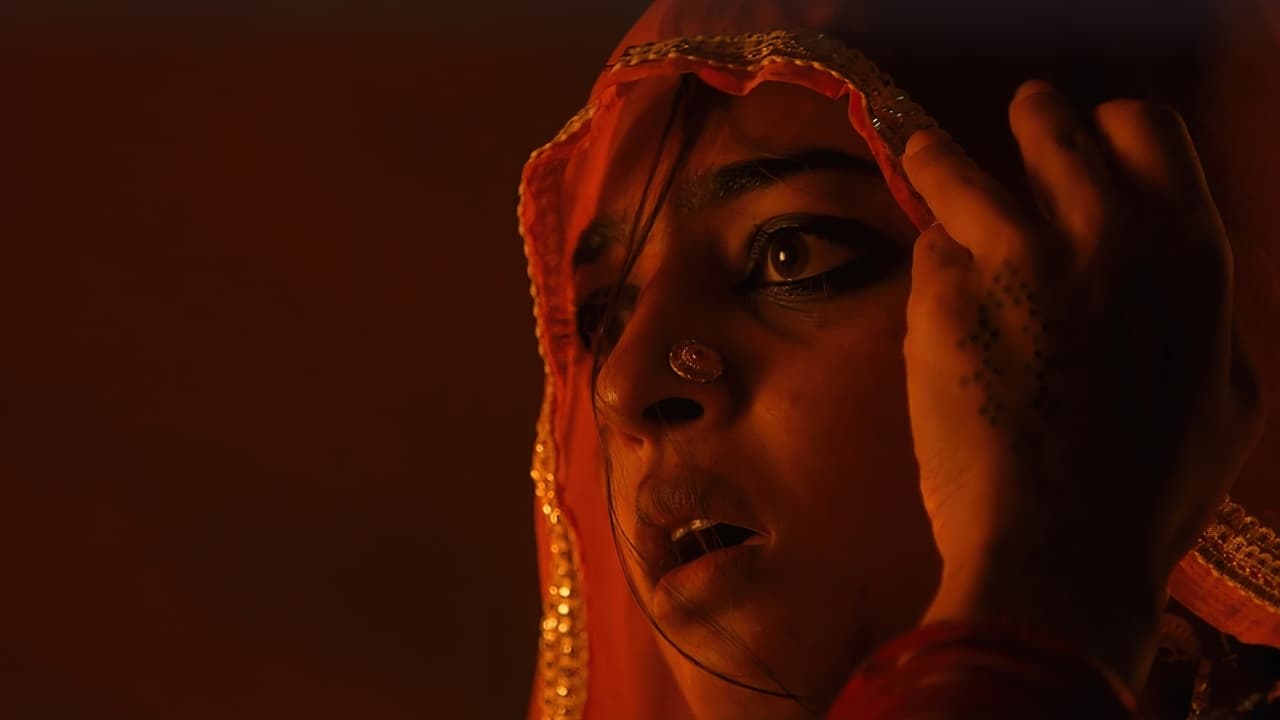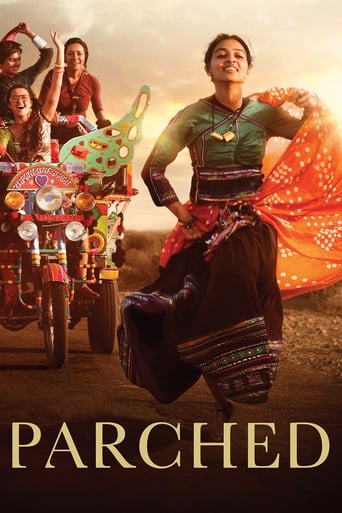

An absolute masterpiece that paints the true image of women in rural India. It wouldn't be an exaggeration to say its one of the best movies to come out of Bollywood in recent times. The fact that this movie has 7.8 rating (as of 7/1/2018) shows you where the standards of the Indian audience is. If more movies like Parched were commended, Bollywood might not come with the crap that kills our brain cells every time we watch it. Superb Acting. Superb Script. And Brilliant direction.
... View MoreThe story of women trapped in the socities' barriers fighting to break free. The cast of the movie is brilliant and the story equally captivating. The movie leaves you in the end with awe. You will be left wondering about the lives of people who live this life as shown in the movie. Really brilliant piece. Very happy to see such potential in bollywood.
... View MoreI don't understand where they find these depressing stories from rural India to suit the imagination of western audiences about India. Now that they are looking for screenings suddenly there are fake reviews everywhere as you can see in the beginning everyone rated it one star but suddenly they are paying up the reviews. I found the movie painful to watch to see the actors and directors beg for awards and a western audiences. They might as well called the movie award dooo instead of Parched. Seriously ? These cynical feminist movie makers don't see how girls are celebrated in millions of middle class families in India. They don't see India had woman prime ministers, presidents, and chief ministers of many states in India while US whose audience they target still has to elect their first women president ? It is strange how these movies have to setup their stories in deeper and deeper remote parts of India to justify the imaginary atrocities that can happen but not look around to see hundreds of contradictions to these stories everywhere else in India. Yes India is a patriarchal society but the stronger family system has served it well for thousands of years probably with less women suffrage compared to most other cultures. Just because free sex and pub culture is a social taboo that doesn't mean women are not empowered. Empowerment can also mean women are proud mothers wives and grandmothers who do not necessarily get beat up by their husbands every day like these movies show but are respected and revered by entire family. I am no way seeing there is no discrimination against women in India or the world but instead of making them a victim group and showing all men as evil how about we accept that a society is an amalgamation of all types of people and thoughts no matter what their gender is. This is a wannabe Deepa Mehta's fable attempt to exploit Radhika Apte's willingness to dare for a cause and western audience's need to feel like the rest of the world is so ignorant.
... View MoreRight from the opening scene through to the last this was a beautifully shot movie. It was clear that a great deal of attention had been paid to every frame. Although the story, at times is harrowing to watch, the cinematography throughout, was a visual treat, so good I was tempted to watch the movie again with the sound turned down.The acting was also superb, particularly by the lead actresses, of which there were three. The tender scene in the hut where one of them bathes the others wounds was very touching, and shot in a moving way that was in no way gratuitous (as is often the case in Hollywood movies I find).Is it everyone's cup of tea? Definitely not. If you're after non-stop action and violence, then it's not for you, and if you're after a romantic comedy I'd look elsewhere. But if you're looking for a film that is a pleasure to watch, gripping from start to finish, brilliantly acted, and has enough food for thought for ten movies, then you'll love it.
... View More